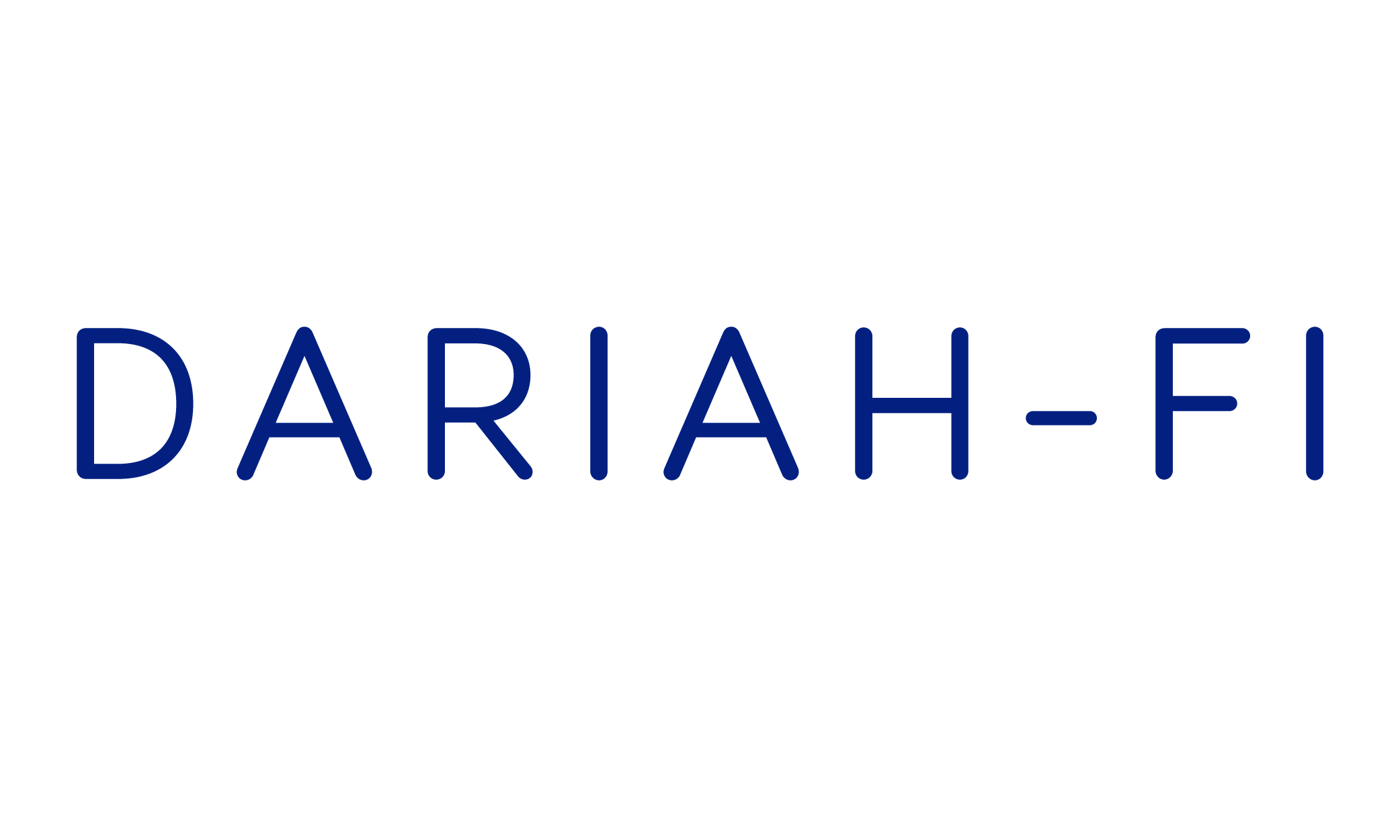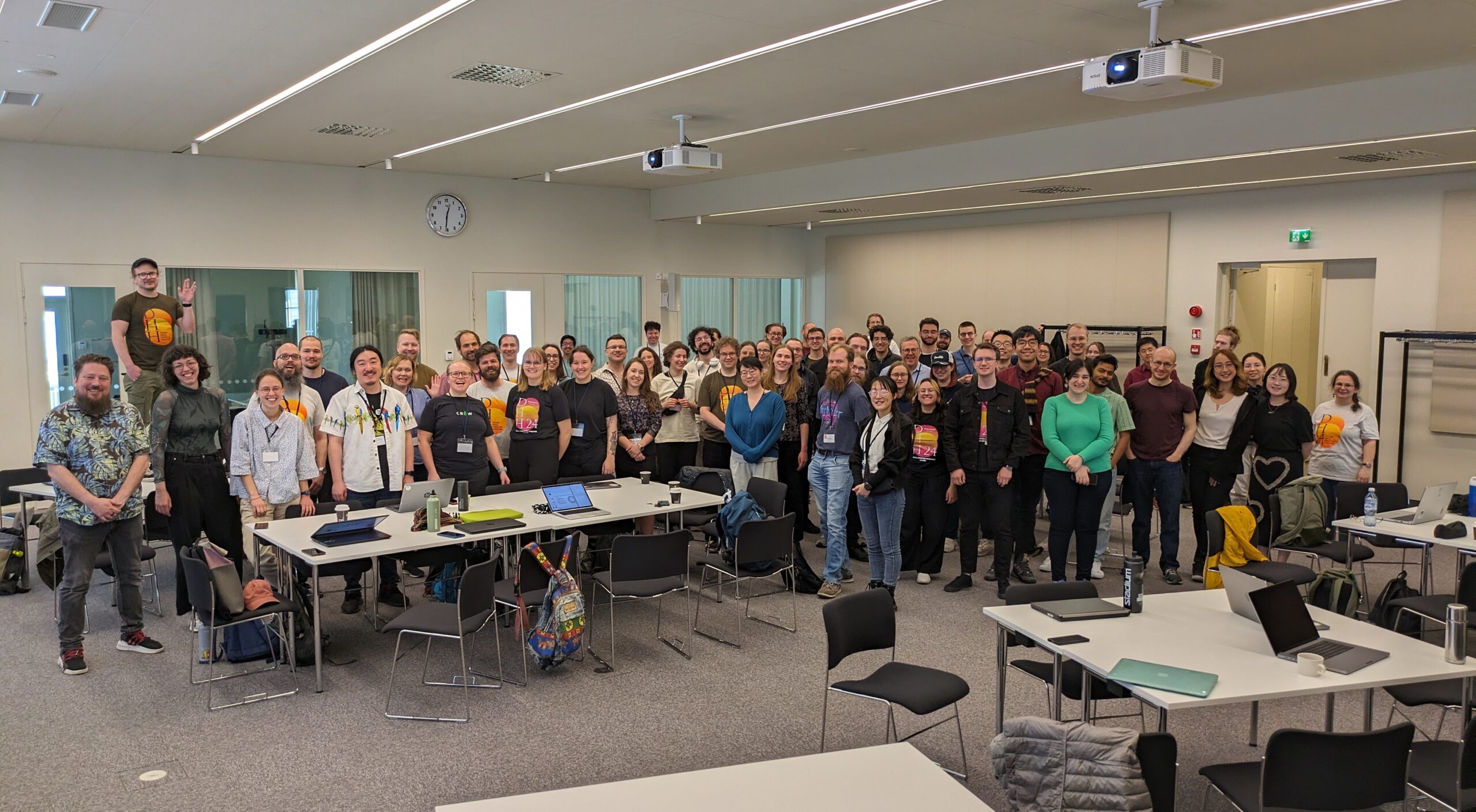Here is a review to the past week’s DH Hackathon in Helsinki, with the main take-outs on each of the projects.
Last week I witnessed my first, and overall the 9th edition of the traditional Helsinki Digital Humanities Hackathon. This event gathered four research teams under the most diverse topics, from luxury in early modern books to success in Eurovision songs, and examined discourse from Parliament to Reddit. Its 50 participants came from various corners of Finland and 14 from diverse points of Europe kindly sponsored by CLARIN and DARIAH. As a part of the organizer team I had not much to do other than buzz around if assistance was needed, but as it turned out, the level of autonomy and efficiency of groups allowed me to just enjoy the atmosphere, which I hope to gather in these lines.
DHH is a different kind of Summer School that offers a unique setting to students and PhD researchers from humanities, social sciences, computer and data science to come together during an intensive period of ten days. This setting generates an interdisciplinary ecosystem that allows to experience a research project from start to finish.
The essence of a digital humanities hackathon was best captured by two participants who were invited to reflect about their experience on the last day: Marika, data science student from Belgium had participated previously in hard-science hackathons: “this is different, this is not just hacking, here I could experience both sides, and I found myself enjoying pondering what luxury could mean for 18th century folk”. Helsinki based Kärt recognized that trust and collaboration made this quite unique “even if one does not have a clear view of what is going on at all times or in all fronts, everybody was very open to explain”. For her, the real experience did not come from the results but was in the process. These comments reflect the core goal of DHH, to collaboratively explore uncharted academic terrain. Participants from humanities and social science dare scale-up the amount of data or scope of their questions, and computer and data scientists apply their coding skills not to “synthetic” scenarios but to help solve real-life problems.
The four teams were guided by a handful of researchers seasoned in either fields of data science, humanities or social science. Even if one admitted that the level of participants is such that he considered himself “entirely redundant”, their experience with the research material or in DH is important to offer context and guidance about what is there to “mine”, or what kind of questions have potential with which set of data, indeed DATA are important participants in this hackathon. Also team leads need to maintain the participants’ ambitions realistic, as it is for each team to decide what lines of investigation they crack open in a very limited time.
So, if the main attraction of this DH Hackathon is the experience for participants, what else is there to say? Well, the best way to showcase this are the posters that teams have to produce in parallel to hard coding, re-routing failed hypotheses and intense discussions over loads of coffee (or green tea). DHH posters are a treasure trove, because they offer the most suitable format for participants to document their process alongside results. Also, for audiences and future participants to learn what is DHH.
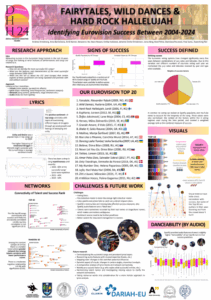
The Eurovision team’s project “Fairytales, Wild Dances & Hard-rock Hallellujah”, was a pioneer in approaching audiovisual content at the DHH. This original research into the lyrics, performance visuals and artists’ networks, found that if these elements are uniquely mixed up, this may contain the secret recipe for the next winner of this musical camp classic (you can read more about here).
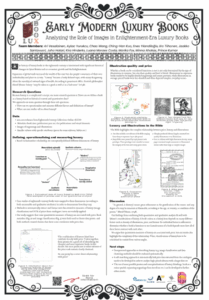
For their project “Early Modern Luxury Books” the LUXboox team tackled the tricky concept of luxury calculated through a combination of variables derived from the materiality of books: from prices, book formats, printing techniques, and image quality and density (here is more to read).
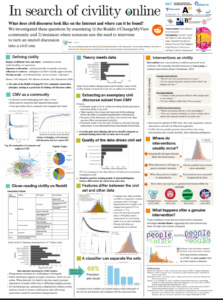
The online discourse team embarked “In search of civility online” and developed a sound code of conduct and research methodology to identify, evaluate and promote genuine civility in the wild west of Reddit.
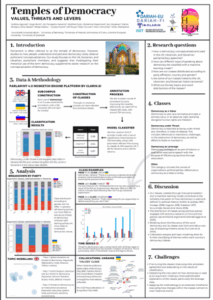
The parliamentary team’s project “Temples of Democracy” put under a magnifying glass politicians’ own rhetoric, comparing values connected to democracy across countries or political spectrum producing interesting outlooks for future examination, e.g. zooming into specific historical events or its evolution across time.
Greetings,
Inés Matres
